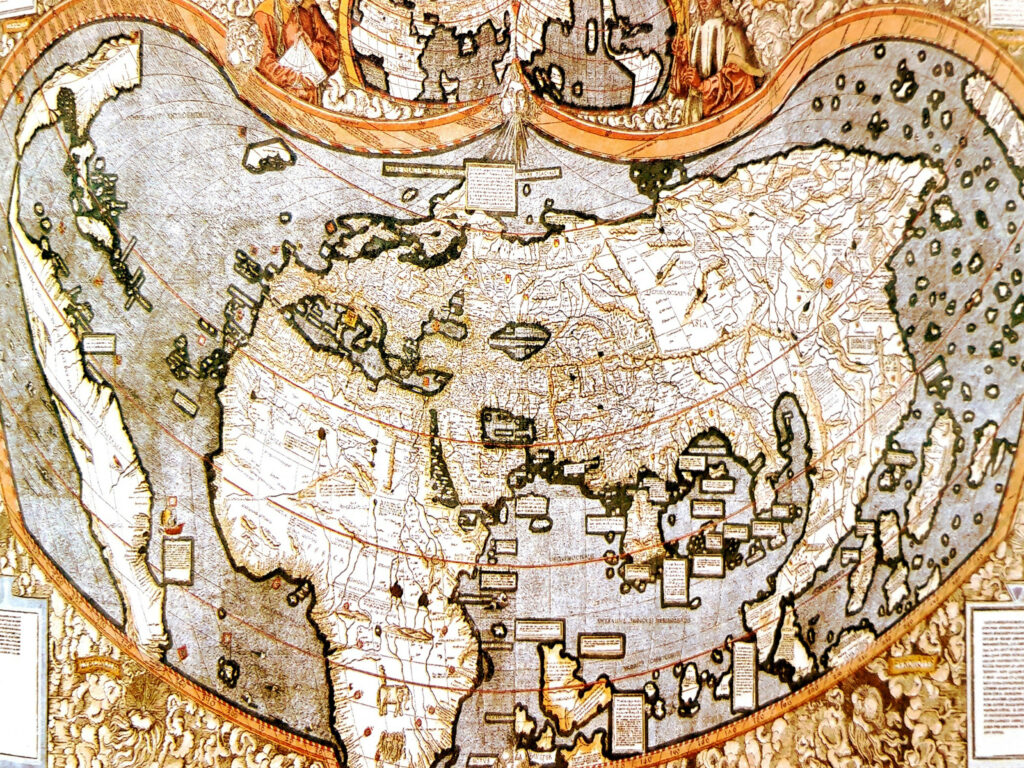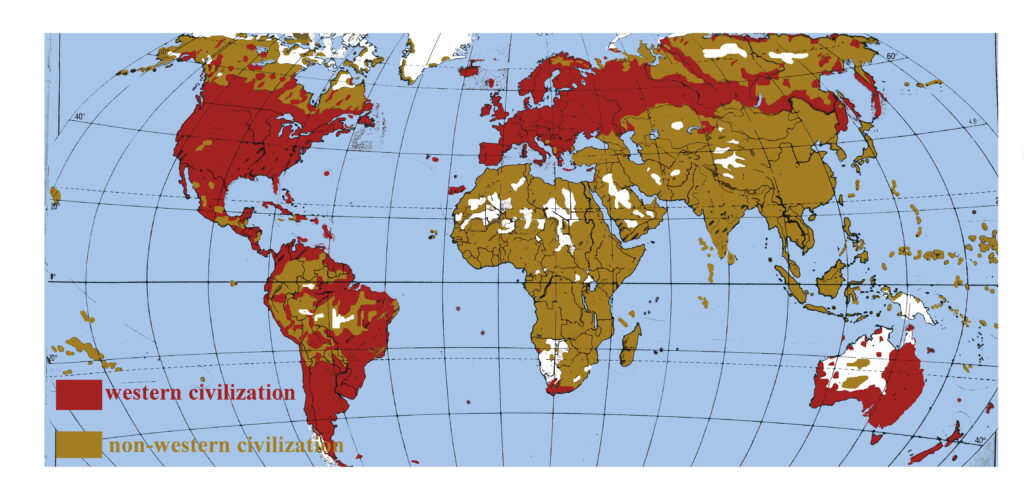
In my writings, as usual, I always grab a good-sounding demagogic slogan, that is, a manipulative, almost cliché-like keyword that has become a meme, and logically explode it to its atoms. Now my target phrase is after my previous post the ‘Europeanism’, or the ‘old Europe’, or ‘European culture’, or ‘European identity’, name it whatever you want. Well, what is the famous “European culture” when I only know about European cultures, and I don’t see Europe as more than a geographical concept, which is not even an independent continent, but a large western peninsula of the Eurasian supercontinent. How could we interpret Europe, if not as a geographical, but as a cultural category? What is meant by European culture? Let’s find out!
How can we define the ‘Europeanism’? There are several interpretations for this:
European standard of living
Some try to define it with an even more illogical slogan such as the European standard of living. Well, what is that? The European standard of living can be Luxembourgish or Moldovan. But even within the EU, there are huge differences between Swedish and Portuguese living standards. Europe is also Switzerland and Nenets land. Why do they only mean “good” and “quality” standard of living under European? A standard of living similar to that of Luxembourg is only a small fraction of Western Europe, that is, a poor standard of living and poverty can still be European, and based on experience, it can be more so. We can therefore reject the interpretation of European culture according to the standard of living. But then what is “European culture”?
The Judeo-Christian culture
According to some, it is the Christian religion, which they believe is the cradle of Europe, or indeed the Judeo-Christian cultural circle. With this interpretation, however, we are again on the quagmire, because it is a fact that Europe is largely in the Judeo-Christian cultural circle and this is its root, the Jewish-Christian cultural circle and Christianity as a religion are not a European characteristic, but a world phenomenon. Moreover, Europe is not even the cradle of Christianity, the Middle East is. Both the Middle East and North Africa became Christian a millennium earlier than Europe, especially its northern and eastern areas of Europe.
Although Christianity died out in the Middle East and North Africa, the Christian religion remained in Europe and conquered the entire American continent in the same way. Europe was at best the mediator of religion, but by no means its cradle. The fact that Kosovo, Albania, Bosnia-Herzegovina and the North Caucasus, which also belong to Europe, are Muslim, and the earliest Christian state, Armenia, is Asia, and Georgia, which is also early Christian, lies south of the Caucasus. So both Georgia and Armenia can be considered European according to religion only if the Muslim North Caucasus (Chechnya, Ingushetia, Dagestan) is Asian, which is logically untenable, given the fact that the geographical border is the Caucasus.
The Holy Land does not geographically belong to Europe, but Córdoba, which has an Islamic tradition, does, and I haven’t even touched on the sharp cultural border between Western Christianity (Catholic, Protestant) and Eastern Christianity (Orthodox). According to some scholars Western Civilization mostly includes Western Christianity, but the eastern part of the continent is Orthodox. In other words, in terms of religion, Zagreb is closer to Rio than to Belgrade, just as Belgrade is closer to Vladivostok than to Zagreb. Therefore, European culture cannot be interpreted on the basis of religion. Then how to proceed?
Empires uniting cultures
Perhaps the European continent could be interpreted on the basis of culturally unifying empires, European culture? However, there was no such empire that would have integrated all of Europe and only Europe into one culture. Even the European Union is good if it only covers half of the continent. Perhaps the Greco-Roman civilization? The Greek empires, thus the Hellenic culture, never reached the mainland of the continent beyond Dalmatia, on the contrary, it also reached India in the east. Similarly, Rome did not create an empire of a European nature, it was more of a Middle Eastern and North African empire than a European one, but it was more typically a Mediterranean empire.
Greco-Roman culture therefore barely reached north of the Alps, than south of the Sahara, so it was as much European as it was African. Thus, under the yoke of Rome, Egypt and Syria were culturally closer than Scotland, especially Scandinavia, to this “European culture”. The successor of the Roman Empire, the Frankish Empire, was a European empire in terms of its nature, but it was Western European. Even then, the East was a different world. So, Europe has never had such a culture-creating unified political entity that would have united all of Europe and not hung beyond it by at least one piece of land. It does not hurt to forget that the XII. A century ago, the inhabitants of the continent did not know the word “Europe”, just as they were not aware that it was a separate continent.
Linguistic and anthropological definition
The linguistic definition, as the Indo-European language family, and the anthropological definition, as the Europid great race, are just as logical a fiasco as the above, if we want to define Europe culturally. “Old Europe” is not so old as to be older than the other continents, as it is geologically the youngest. It was only in the Miocene that the shape of the continent as we know it today was formed, when all the continents were in their prime. Anthropologically, it is not really old, because Africa is the cradle of humanity, and it is not even culturally older than Asia, where the Fertile Crescent is the cradle of human civilization. Therefore, European culture cannot be defined on the basis of age either.
In other words, “European Culture” is logically incomprehensible, and Europe cannot be considered anything other than a geographical category. And it is also just a wishful thinking that Europe would be some separate entity, nevertheless it’s a modern approach to imagine identity to, where is not in reality. Pre-modern man never experimented with such things, not even on a thought level.
It makes more sense to talk about Western civilization instead of European culture or civilization. But what is western civilization?
I would say the Greco-Roman civilization and Judeo-Christianity are that. But it is important to emphasize that, although religion alone has a prominent role, it is not the sole determinant of a culture, and thus of the definition of civilization. The Philippines, for example, is Roman Catholic but does not belong to the West in any way.
I looked at many maps in this regard, the most famous of them is Samuel Phillips Huntington’s representation. But for me they are too categorical and arbitrary. Civilization borders do not coincide with country borders, and this is a fundamental flaw of these maps. In addition there are no exact borders of the West. There are a lot of grey zones, especially where there is a mixed population. Here it is mainly about the mixing of settlers and indigenous cultures. So I made my own, which I tried to make more accurately:

However, I would like to mention one more factor that defines the West, the linguistic factor. The western branch of the Indo-European language family has three main groups and several subgroups:
- Nordic: Anglo-Saxon, German
- Southern: Neo-Latin, Greek
- Eastern: Slavic, Baltic
The only exceptions to this are three languages in the west, which are Uralic Altai: Finnish, Estonian, Hungarian. In other words, the West cannot be defined solely on the basis of linguistics either, but the languages play no small role in culture, and civilization. What you can clearly see on the map, however, is that Western civilization does not coincide with the geographical boundaries of Europe. So Europe is no more than a geographical category. But anyways, human greatness is neither cultural nor geographical nor geo-political phenomenon.
Thanks for reading me!


A fascinating discussion is worth comment. I do think that you ought to publish more about this issue, it may not be a taboo matter but typically folks dont speak about such topics. To the next! Cheers!!
Itís difficult to find well-informed people on this subject, but you seem like you know what youíre talking about! Thanks